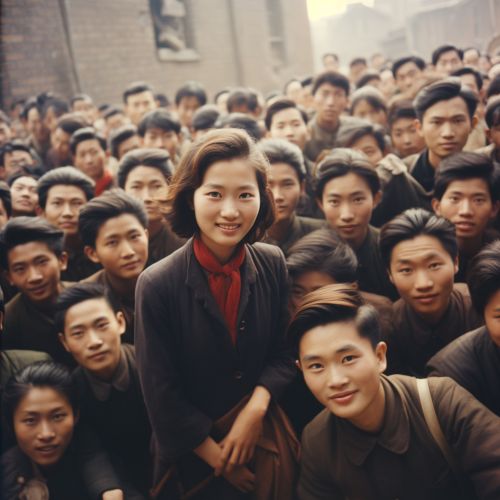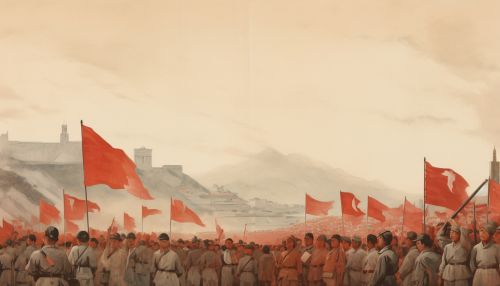Cultural Revolution
Overview
The Cultural Revolution, formally known as the Great Proletarian Cultural Revolution, was a sociopolitical movement in the People's Republic of China that took place from 1966 until 1976. Launched by Mao Zedong, then Chairman of the Communist Party of China, its stated goal was to preserve Chinese Communism by purging remnants of capitalist and traditional elements from Chinese society, and to re-impose Mao Zedong Thought (known outside China as Maoism) as the dominant ideology in the CPC.


Background
The Cultural Revolution marked the return of Mao Zedong to a position of power after a period of less radical leadership in the CPC to recover from the failures of the Great Leap Forward. Mao's goal was to reassert his authority over the Chinese government, believing that the current Communist leaders were moving the party, and China itself, away from its socialist ideals.
The Start of the Cultural Revolution
The Cultural Revolution began in May 1966, after Mao alleged that bourgeois elements had infiltrated the government and society with the aim of restoring capitalism. He insisted that these "revisionists" be removed through violent class struggle. China's youth responded to Mao's appeal by forming Red Guard groups around the country. The movement spread into the military, urban workers, and the CPC leadership itself.
The Red Guards
The Red Guards were a mass student-led paramilitary social movement mobilized by Mao Zedong in 1966 and 1967, during the Cultural Revolution. They were charged with the duty of cleansing society of old elements and propagating Mao's thought. The Red Guards were formed from the youth and students of China, who were to become the new culture of the revolution.
Impact on Society
The Cultural Revolution damaged China's economy and traditional culture, with an estimated death toll ranging from hundreds of thousands to 20 million. Mao declared the Cultural Revolution to be over in 1969, but its active phase lasted until the death of military leader Lin Biao in 1971. After Mao's death and the arrest of the Gang of Four in 1976, reform policies led by Deng Xiaoping emerged in 1978.
Legacy
The Cultural Revolution has been treated officially as a negative phenomenon ever since. Leaders like Deng Xiaoping, who came to power in the years after Mao's death, criticized the Cultural Revolution and took measures to prevent a similar upheaval. The Cultural Revolution has been a taboo topic in China for decades, and it is only in recent years that the Chinese government has begun to let its people discuss this period openly.
